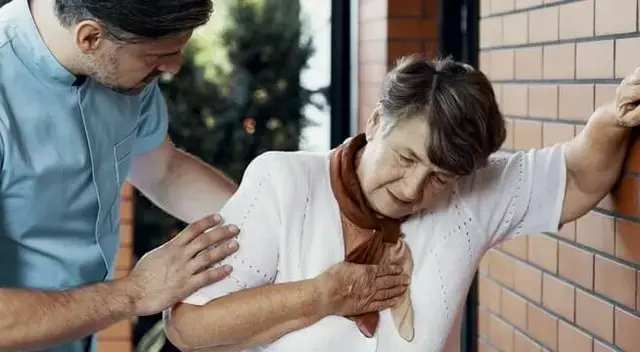- Home
- Medical news & Guidelines
- Anesthesiology
- Cardiology and CTVS
- Critical Care
- Dentistry
- Dermatology
- Diabetes and Endocrinology
- ENT
- Gastroenterology
- Medicine
- Nephrology
- Neurology
- Obstretics-Gynaecology
- Oncology
- Ophthalmology
- Orthopaedics
- Pediatrics-Neonatology
- Psychiatry
- Pulmonology
- Radiology
- Surgery
- Urology
- Laboratory Medicine
- Diet
- Nursing
- Paramedical
- Physiotherapy
- Health news
- Fact Check
- Bone Health Fact Check
- Brain Health Fact Check
- Cancer Related Fact Check
- Child Care Fact Check
- Dental and oral health fact check
- Diabetes and metabolic health fact check
- Diet and Nutrition Fact Check
- Eye and ENT Care Fact Check
- Fitness fact check
- Gut health fact check
- Heart health fact check
- Kidney health fact check
- Medical education fact check
- Men's health fact check
- Respiratory fact check
- Skin and hair care fact check
- Vaccine and Immunization fact check
- Women's health fact check
- AYUSH
- State News
- Andaman and Nicobar Islands
- Andhra Pradesh
- Arunachal Pradesh
- Assam
- Bihar
- Chandigarh
- Chattisgarh
- Dadra and Nagar Haveli
- Daman and Diu
- Delhi
- Goa
- Gujarat
- Haryana
- Himachal Pradesh
- Jammu & Kashmir
- Jharkhand
- Karnataka
- Kerala
- Ladakh
- Lakshadweep
- Madhya Pradesh
- Maharashtra
- Manipur
- Meghalaya
- Mizoram
- Nagaland
- Odisha
- Puducherry
- Punjab
- Rajasthan
- Sikkim
- Tamil Nadu
- Telangana
- Tripura
- Uttar Pradesh
- Uttrakhand
- West Bengal
- Medical Education
- Industry
Dyspnoea can Predict Survival in Patients With Malignant Pleural Effusions

Malignant pleural effusions (MPEs) are common and cause disabling breathlessness. MPEs are associated with poor survival, with a mean prognosis of approximately 6 months. A recent study suggests that breathlessness measured using a visual analogue scale for dyspnoea (VASD)is associated with survival in patients with MPE. The research has been published in the journal CHEST.
In other chronic respiratory and cardiac diseases associated with poor survival and breathlessness, increased breathlessness has been shown to be predictive of poor survival. In patients with idiopathic pulmonary fibrosis, breathlessness assessed using the Medical Research Council chronic dyspnoea score is associated with poor survival. Dr Eleanor K Mishra and his team further conducted a study to investigate whether breathlessness measured using VASD predicts mortality in patients with MPE.
In this meta-analysis, researchers analyzed individual patient data from five randomized controlled trials of 553 patients undergoing interventions for MPE. They recorded VASD at baseline and daily post-intervention and followed up the patients until death or end of the trial. They used univariate and multivariable cox regression to identify factors associated with survival.
Key findings of the study were:
- At baseline, the researchers found that VASD was significantly association with worse survival (hazard ratio of 1.10) for a 10mm increase in VASD.
- Multivariable regression analysis also confirmed the significance of the association between VASD and poor survival outcome.
- They also noted other predictors of survival such as serum C reactive protein level and tumour type.
- They further noted that previous treatment with chemotherapy, performance status, pleural fluid lactate dehydrogenase, serum albumin, haemoglobin, serum neutrophil: lymphocyte ratio and size of effusion were associated with survival on univariate but not multivariable analysis.
The authors concluded, "meta-analysis of individual patient data from five RCTs has demonstrated an association between breathlessness and survival in patients with MPE".
They further added, "Breathlessness, measured using VASD at baseline and post-procedure, is a predictor of survival in patients with Malignant pleural effusions (MPEs)".
For further information:
https://journal.chestnet.org/article/S0012-3692(21)00452-9/pdf
Medical Dialogues Bureau consists of a team of passionate medical/scientific writers, led by doctors and healthcare researchers. Our team efforts to bring you updated and timely news about the important happenings of the medical and healthcare sector. Our editorial team can be reached at editorial@medicaldialogues.in.
Dr Kamal Kant Kohli-MBBS, DTCD- a chest specialist with more than 30 years of practice and a flair for writing clinical articles, Dr Kamal Kant Kohli joined Medical Dialogues as a Chief Editor of Medical News. Besides writing articles, as an editor, he proofreads and verifies all the medical content published on Medical Dialogues including those coming from journals, studies,medical conferences,guidelines etc. Email: drkohli@medicaldialogues.in. Contact no. 011-43720751


